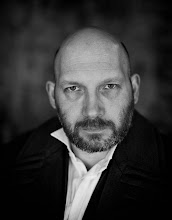
Last year, whilst suffering one of my periodic bouts of writer's block, I made an attempt to write my way out of it, vowing to write a thousand words a day, regardless of quality, narrative sense or any of the other things that writers should adhere to.
Wrote quite a bit, too, before the project got shelved.
Today, after a lapse of several months, I went back to the story, just to see what it was like.
And, do you know, it's not actually that bad.
Yes, some of the names will have to be changed when it comes to a redraft, there's a lot of repetition of phrases and a pulpish feel to the narrative (when in doubt, have someone come through the door with a gun, to paraphrase Raymond Chandler) and, yes, my influences are showing (there's a wee bit of Michael Moorcock in there somewhere beyond doubt)
On the other hand, it's quite fast paced, the characters are, if not exactly three dimensional, then at least recognisable as a certain type of character. There's an (internally) logical reason why they do what they do and the background, although done in fairly broad sweeps, comes across reasonably well (if not by any stretch of the imagination totally unique). And there's that wee bit of Michael Moorcock in there.
It's a fairly old-school sword and sorcery tale where a powerful, yet troubled hero goes a-questing (for Death himself in this instance) fights against, and overcomes, impossible odds, has a wisecracking sidekick, a couple of enchanted weapons (which, in terms of the story, he has to lose rather than gain) and a doom laden destiny.
Not the most original of tales, admitted, but there's a good feel to the story, I think, and it's more character than plot driven (probably due to the fact that it was made up on the hoof so the characters dictated what happens next rather than try to shoehorn things in for the sake of Plot).
I quite enjoyed reading it - so much so that I added another 1,200 words and a new plot development to the story.
More importantly, I want to see what happens next.
Writing, as I think someone once said, is an addiction.






